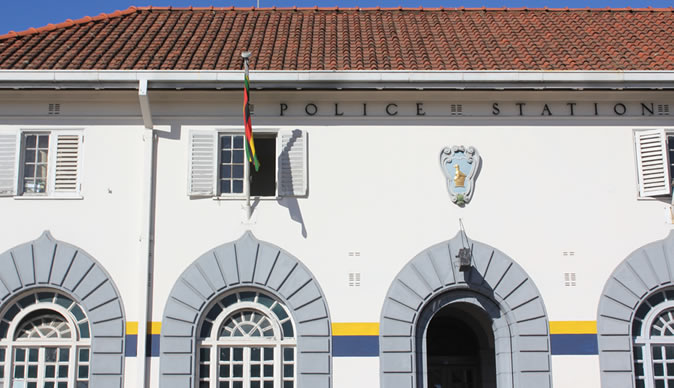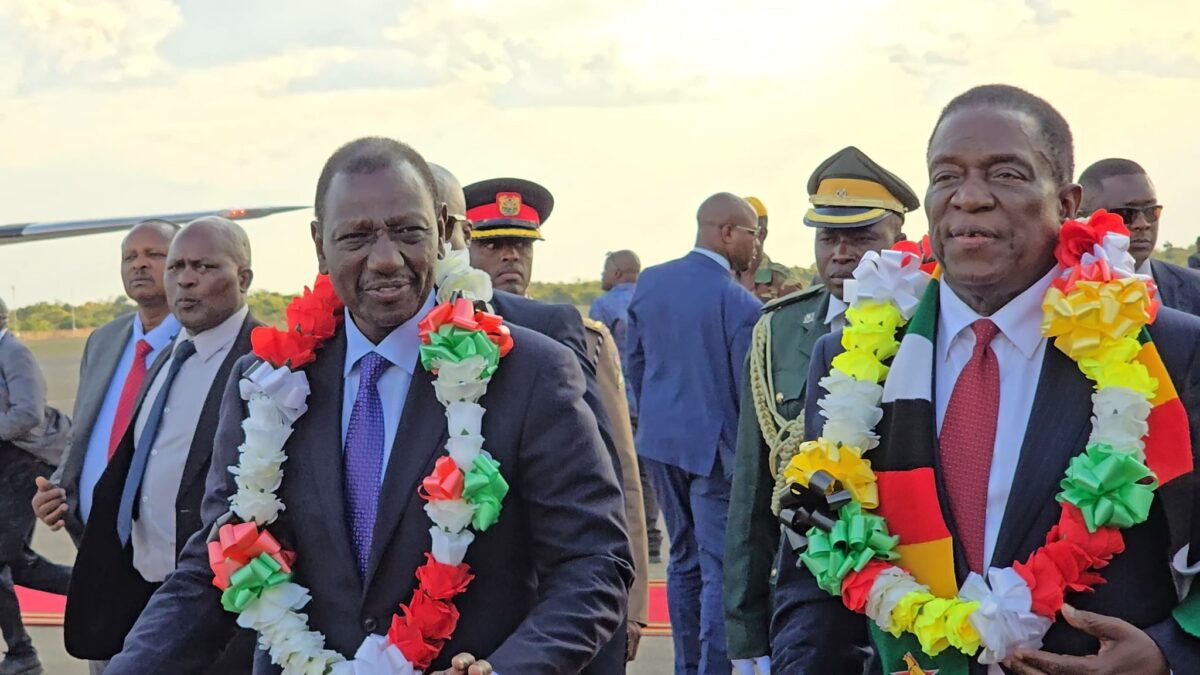HARARE – Zimbabwe’s finance minister announced a mid-term budget review on Thursday which more than doubled the national budget announced last November, whose projections were dislocated by inflation which was 192 percent in June.
Mthuli Ncube revised downward his economic growth projections from 5.5 percent to 4.6 percent in 2022 as he also announced new revenue generation measures which the opposition said would hurt the poorest.
Ncube lowered the Value Added Tax threshold from US$60,000 to US$40,000, while raising presumptive tax from 10 to 30 percent for cross-border traders without a tax clearance certificate.
The minister also appeared to slam the door on public sector workers who are agitating for United States dollar salaries as he only revised his budget to cover a 25 percent raise in February and a 100 percent pay increase announced early this month.
Former finance minister and Citizens Coalition for Change MP Tendai Biti said Ncube’s revenue measures were “cruel” and the review, in large part, a “complete disaster.”
Walter Mzembi, the former tourism minister, added: “There is no government and minister of finance in the world who survives a more than 100 percent review of his original budget. Only in Zimbabwe do such shenanigans happen and it’s business as usual. What happened to budget assumptions? How do you get everything 100 percent wrong?”
The budget offered a few positives, including a new tax-free threshold of Z$600,000 from Z$300,000. Tax bands were adjusted to end at Z$12 million from the current Z$6,000,000 per annum, above which tax will be levied at a rate of 40 percent with effect from 1 August 2022.
Ncube also raised the tax-free bonus threshold from Z$100,000 to ZW$500,000 with effect from November 1, 2022.
But it was mostly pain for small businesses.
“The Value Added Tax threshold is currently pegged at US$60,000 or the local currency equivalent,” Ncube said. “Consequent to the current macroeconomic environment, the active number of registered operators has reduced since they now trade below the Value Added Tax Threshold.
“It is, thus, necessary, in the interest of revenue, to maintain a stable tax base, hence, I propose to reduce the Value Added Tax registration threshold to US$40,000 with effect from September 1, 2022. Traders that record a turnover of US$40,000 or the local currency equivalent during any year of assessment will, thus, be compelled to register for VAT.”
Businesses will also be burdened with paying tax in both the Zimbabwe dollar and local currency in ratio to their earnings.
Ncube announced: “Corporates are compelled to convert their income and expenditure qualifying for deduction to local currency when assessing their tax liability. Thereafter, the tax liability is split into local and foreign currency on the basis of the ratio of revenue generated in either currency.
“The requirement to submit a single income tax return has created uncertainty in determining the local and foreign currency tax liability. In order to mitigate against the risk of over or understating tax, I propose that taxpayers prepare two separate tax returns in the currency of trade. The expenditure qualifying for deduction under each tax return will be determined by the ratio of local to foreign currency income.
“For purposes of conversion to foreign currency, where necessary, the average auction exchange rate during the year of assessment will be used. This measure takes effect from October 1, 2022.”
Ncube said he had been forced to review from Z$492.8 billion to Z$832.8 billion his budget allocation for employment costs, taking into account the salary reviews for civil servants and fresh recruitment of soldiers, teachers, judges and magistrates.
“To meet the increasing operational cost of government, expenditures to year end are now projected at Z$1.9 trillion, against the approved budget of Z$968.3 billion, entailing additional spending of Z$929 billion,” Ncube said.
The minister said “exchange rate and price instability especially during the second quarter of the year emanating from global and domestic shocks… all impacted on the achievement of the 2022 national budget objectives and targets.”
“The instability is notwithstanding relatively sound economic fundamentals supportive of a stable domestic currency such as increased foreign currency being generated by the economy, near balanced budget, suppressed reserve money growth and current account surplus,” he maintained.
Biti said lowering the VAT catchment from US$60,000 to $40,000 would “hit hard the informal sector.”
“Perhaps most shocking are Ncube’s tax measures which he was too embarrassed to read out,” Biti said. “The most cruel is the increase to 30 percent of withholding tax on cross-border traders without a tax clearance certificate. This will hurt 60 percent of the population in the informal economy.”
“Big business is not spared. Corporates are now required to prepare two sets of accounts – one for US$ and another for Z$ transactions. This is a costly exercise.”
Biti said Ncube had missed an opportunity to “address fundamental disequilibrium in the economy”, specifically hyperinflation, exchange rate instability, public sector pay, debt financing and low production.
He added: “Failing to address the key challenges of the day was a cowardly criminal omission that in any event has been the hallmark of Ncube’s tenure.
“The 2022 budget was Z$850 billion, but a Z$1.9 trillion budget is now being proposed. Effectively Ncube is proposing a brand new 2022 budget which is 120 percent more than the original budget. This is sheer insanity driven by money creation and an overzealous fiscal policy.
“They are failing to live within their means and are now resorting to money printing, a fact confirmed by Ncube’s admission that broad money grew by 245 percent by May 2022. That domestic debt is now Z$1.3 trillion is further proof of the existence of a profligate, irresponsible regime.”
















